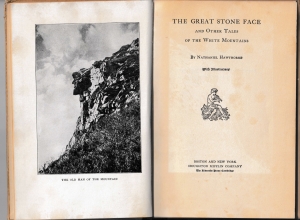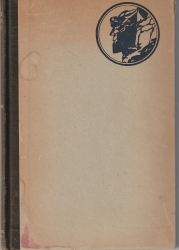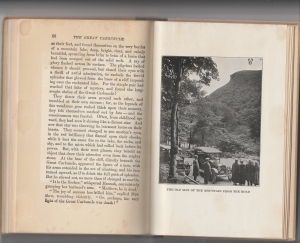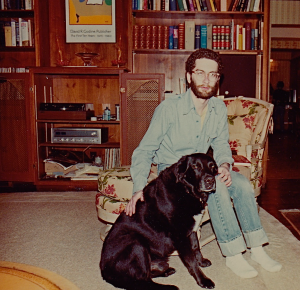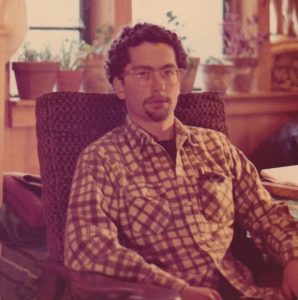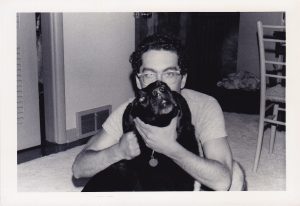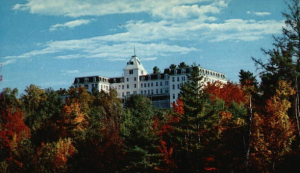A Tribute to the Old Man of the Mountain, Franconia Notch, White Mountains—RIP
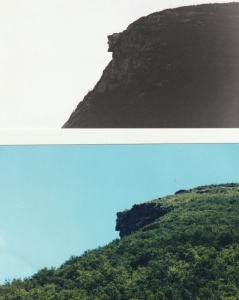 I was extremely lucky to spend a good chunk of my young adult years as a student at Franconia College, in Franconia, New Hampshire, located in the White Mountains, near the dramatic topographical feature called Franconia Notch. I made many close friends while a student at the college from 1973-77, like the late Robert Henry Adams and Karl Petrovich, with whom I formed a troika (the power trio’s pictured below), both of them lost to me along the way, sadly, and other good friends whom I still know and appreciate today. Franconia College was an experimental institution, part of the ferment of the times, an educational environment I relished, and am still grateful I experienced. The scenery that I saw everyday in the area and from a small cabin where I lived with my black Lab Noah was majestic, as pictures here will show.
I was extremely lucky to spend a good chunk of my young adult years as a student at Franconia College, in Franconia, New Hampshire, located in the White Mountains, near the dramatic topographical feature called Franconia Notch. I made many close friends while a student at the college from 1973-77, like the late Robert Henry Adams and Karl Petrovich, with whom I formed a troika (the power trio’s pictured below), both of them lost to me along the way, sadly, and other good friends whom I still know and appreciate today. Franconia College was an experimental institution, part of the ferment of the times, an educational environment I relished, and am still grateful I experienced. The scenery that I saw everyday in the area and from a small cabin where I lived with my black Lab Noah was majestic, as pictures here will show.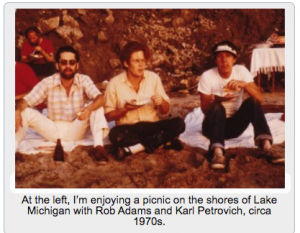
I often photographed the jut-jawed Old Man of the Mountain, aka The Great Stone Face and The Profile, a historic feature of the landscape that humans began marveling at centuries long before New Hampshire was settled by descendants of European colonists. In later decades, the craggy rock face was held together by cables and guy wires, all of which collapsed in 2003.
Going back to the nineteenth century, Nathaniel Hawthorne published “The Great Stone Face” in 1850, a tale about the denizens of the region, and the legendary profile that towered above them. He wrote, “It seemed as if an enormous giant, or a Titan, had sculptured his own likeness on the precipice. There was the broad arch of the forehead, a hundred feet in height; the nose, withs long bridge, and the vast lips, which, if they could have spoken, would have rolled their thunder accents from one end of the valley to the other.”
Click here for more pictures.

